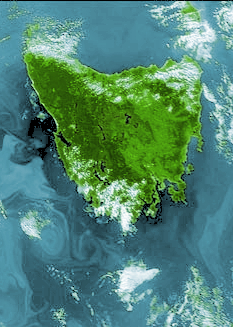Council cuts tourist centres
 Tasmania's Glamorgan Spring Bay Council (GSBC) is offloading its three visitor centres in an attempt to ease its ailing finances.
Tasmania's Glamorgan Spring Bay Council (GSBC) is offloading its three visitor centres in an attempt to ease its ailing finances.
GSBC says it will stop running the centres at Bicheno, Triabunna and Swansea as it struggles with ongoing financial issues exacerbated by the COVID-19 pandemic.
The state's peak tourism body calls it a “confidence blow” that “essentially throws the industry under the bus”.
But at the same time, the state is easing its coronavirus restriction, and the tourism industry is eager to begin recovery.
GSBC, takes in Maria Island, Swansea and the Freycinet Peninsula on Tasmania’s east coast, is a hot spot for the tourism industry.
The Council has been under serious financial duress, with independent reports finding it had no long-term financial plan, asset-management plan or current annual plan.
Coronavirus has compounded the issues, with the Council losing a significant amount of income as costs increase, and allowing a rates freeze for the 2020/21 financial year as part of a statewide council agreement.
The council has voted to borrow another $1.5 million “for general operational purposes” because its cash position is “severely compromised”.
“We are determined to lift our game as a council in terms of financial management, asset management and ensuring that we provide the essential services expected by our ratepayers, residents and the Tasmanian Government,” Mayor Debbie Wisby said in a statement.
“This means making some hard decisions.
“The information centres and the people who work there have provided valuable service over the years.
“However, with more and more visitors moving to online information and booking services, the Council believes it is no longer a strategic use of its limited funds.”
Tourism Industry Council chief executive Luke Martin said it is disappointing news, but could be an opportunity.
“It's really unfortunate in the fifth-most tourism-dependent economy in the country, in our hour of need, that the council would think that tourism is not a core business for them,” he said.
“It's unfortunate that tourism operators have to pay the price.”
“On the east coast, it's a bit of an opportunity for a reassessment about where these business centres play a role, how many and where should they be located.
“It's just unfortunate that the Council has made such a blunt decision like this.
“We're paying the price as an industry for some pretty strange decisions that they've made as a council over recent years to invest in other industries.”








 Print
Print